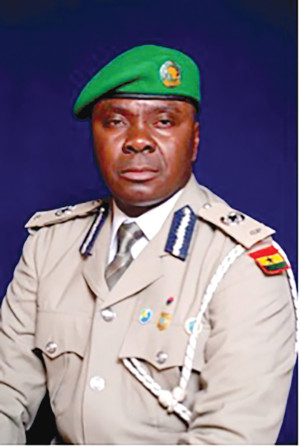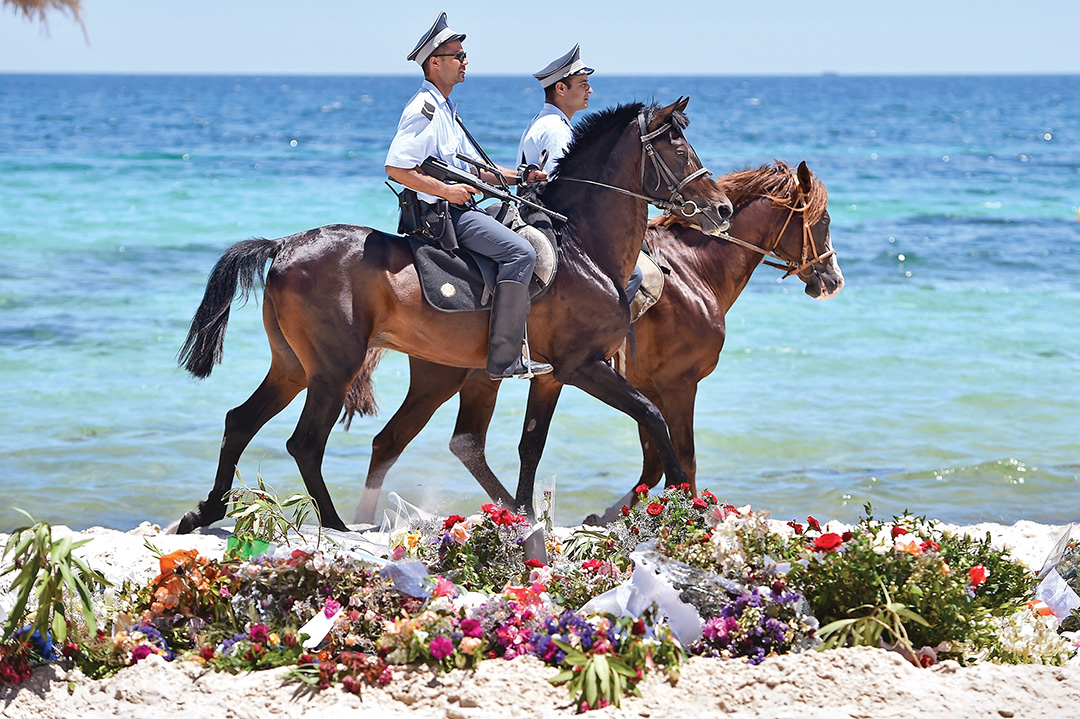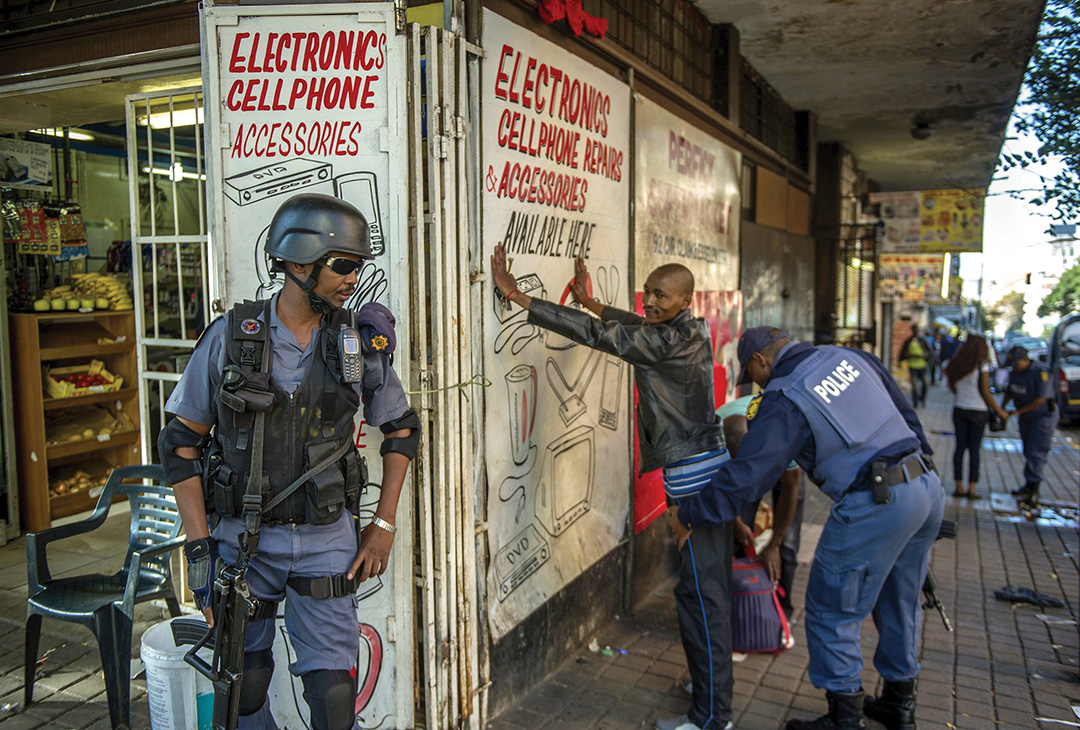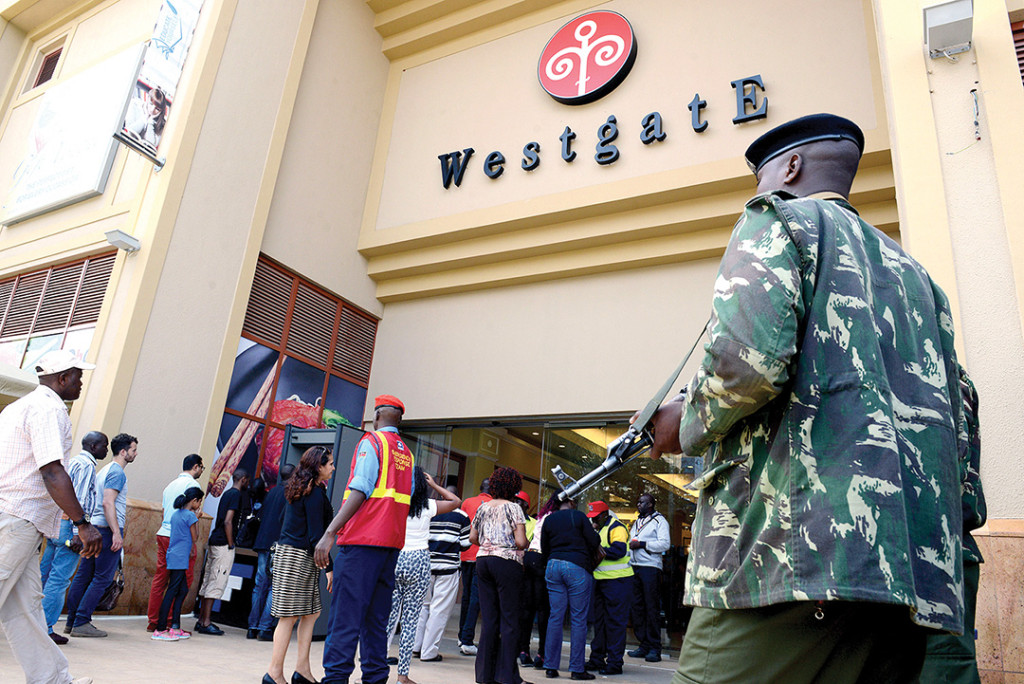Training and Strong Institutions Trump Mere Numbers
Kenya was still reeling from a bloody 2013 attack on Nairobi’s Westgate Shopping Mall when al-Shabaab extremists unleashed another high-profile assault on the nation.
On April 2, 2015, the Somalia-based militants stormed the campus of Garissa University College. They immediately killed two security guards and then began indiscriminately murdering students.
“It was horrible; there was shooting everywhere,” student Augustine Alanga told the BBC.
Student Eric Wekesa told Reuters that he locked himself in his room. “What I managed to hear from them is, ‘We came to kill or finally be killed.’ That’s what they said.”
Four gunmen, surrounded in a dormitory, died when they detonated suicide vests, the BBC reported. A fifth gunman was arrested. When the shooting ended, at least 147 university students had been killed, and more than 500 had managed to escape. Of those, 79 were injured.
In the days after the university massacre, Kenyan President Uhuru Kenyatta announced that the government would ramp up the recruitment of 10,000 new police officers for the National Police Service to bolster security across the nation. Inspector General of Police Joseph Boinett later told The Star of Nairobi that training time would be reduced from 15 months to nine months to streamline the process.
Kenya’s 10,000 new recruits would consist of 6,000 new officers and 4,000 administrators. Hopeful crowds began showing up at 290 locations across Kenya in April 2015. “So far turnout is very good,” Rashid Mohammed, police commander for Nairobi’s Dagoretti area, told World Bulletin. “We have already received over 1,400 applicants.
“This year’s recruitment is timely,” Mohammed said. “Our country needs police officers to be able to effectively counter al-Shabaab attacks. We are currently facing a shortage of around 30,000 police officers.”
Kenya’s response to the attacks is understandable. More police officers can cover more ground, be in more places at once and respond with greater force should a catastrophe arise. However, the need to balance the prevention of increasingly dangerous conditions on the ground with technical and educational proficiency is a delicate task.

PRIORITIZING PROFESSIONALISM
Kenya is not the only African country facing threats from extremists. Nigeria is under constant pressure from Boko Haram, which has extended its reach throughout the Lake Chad region into Cameroon, Chad and Niger. Terrorists have attacked in Tunisia. Al-Shabaab also continues to stage violent attacks in its home country of Somalia.
Because of these growing threats, and common crime and traffic patrols, police are the most likely security force to interact with the public day in and day out. Such contact will only increase as nations such as Kenya seek to bolster their forces. Ensuring a professional force that follows the rule of law and makes protecting the public its first priority will be essential.
Dr. Sayibu Gariba, assistant commissioner of the Ghana Police Service, is finishing a seven-year stint at the African Union in Addis Ababa, Ethiopia, where he serves as chief police training officer for the African Standby Force. Among his duties are monitoring and programming courses and “exercise design, delivery and coordination” for events such as the Amani Africa II field training exercise that was set for October/November 2015 in South Africa.
When it comes to police professionalism, Gariba told ADF, a few points must be stressed: Police work always should be directed toward the core functions of safety and security; police should be accountable to the people and the government; and police officers should be innovative and subjected to practical and continuing education because “knowledge is never static.”
Officers also must know police work. The profession has a defined body of knowledge that includes investigations, patrols, weapons handling, counterterrorism and more. “You cannot just wake up one day and say, ‘I am a police officer,’ ” Gariba said. “There are some issues, there are some skills that one needs to understand and appreciate before you can be a police officer.”
Police officers also need to be able to respond to changing security dynamics by updating their skills. “So if the police have the skills, the competencies to be able to conduct all of these businesses, within the framework of ethical conduct, then we can say that police organization is professional,” he said. “But if they are unable to do this, then I don’t think that this organization is professional.”
One of the problems in Africa, Gariba said, is that sometimes politicians manipulate or disregard the criteria for entry into police forces, particularly as it pertains to education. Sometimes recruits enter the training process with substandard levels of education; some even are illiterate. This makes proper training difficult. The problem is a result of weak government institutions. “A professional organization should have some clear-cut established principles for which everybody can enter into the profession,” Gariba said.
Ultimately, however, qualifications are not the most important thing about being a police officer. “The most important thing is the commitment to duty,” Gariba said. “Commitment to serve the people. Serving them, providing safety and security. Providing them with policing services in an accountable and transparent manner.
“But what I’ve seen is that we have issues where people actually come from the basic level, not because they are committed actually to their job, but one of the key parameters is just to get a job. And this is one of the problems that we have. Such people are not committed to the job.”
Sometimes this lack of commitment can lead people into the system because they believe they can enrich themselves through corruption. For example, Gariba said some officers may seek appointments to traffic divisions so they can extort money from drivers.

THE BENEFITS OF COMMUNITY POLICING
One approach that requires a serious commitment to the ideals of effective police work is community-based policing (CBP). It is a philosophy and a way of organizing police work so that officers and communities team up to provide security and solve crime. In 2003, London-based Saferworld began working with PeaceNet, a national network of Kenyan nongovernmental organizations, to provide CBP in two pilot areas: the Makina village of Nairobi’s densely populated Kibera area, and the Bulla-Pesa area of Isiolo, in Kenya’s former Eastern province.
Saferworld worked with various government and educational institutions to develop a CBP training curriculum. According to its 2008 report, “Implementing community-based policing in Kenya,” CBP comprises these basic principles:
• Policing will be by consent, not coercion.
• Police officers should be a part of the community, not apart from it.
• Officers will work with the community to determine its needs.
• Police will partner with the public and other agencies.
• Policing will be tailored to the community’s needs.
• Police will be accountable for the service they provide.
• Officers will provide top-quality service.
Activities at each pilot site differed according to local needs, but they included raising awareness among police and communities about CBP, establishing community safety and information centers, support for projects, and anonymous information boxes to encourage information sharing on community security. The effort helped build trust and reduced crime.
“Police have held awareness campaigns and open days through which we interact with them,” a CBP steering committee member told Saferworld. “This reduces fear of police and enables us to feel free to report criminal activities in Kenya.”
In at least one case, crime rates went down by 40 percent, and businesses and schools reopened. “This is underpinned by increased trust between police officers and residents, and increased accountability of the police to the participating communities,” the report states.
Gariba said CBP is used in various places across the continent, including Ghana and in the African Union/United Nations Hybrid operation in Darfur. Although he agrees with the philosophy behind CBP, he said the approach can present challenges.
“You know in Ghana there is a language that we call Akan, which is Twi. They have a term; they call the policeman ‘aban.’ Aban is a Twi word that means ‘government,’ ” he said. “It is the perception of the people that the police is behind the government.”
If police are to overcome this perception and make inroads in communities where clan loyalties and relationships are strong, they will have to work to be seen as part of the community, not solely the government.

STRONG INSTITUTIONS ARE VITAL
In the more than 10 years since the CBP program began, the context of police work has changed significantly in Kenya. At the end of 2014, the government was spending more than $655 million on policing, compared to $264 million in 2004, according to a Saferworld report. In that time, the number of police officers grew from 44,000 to 89,000, and the number of police stations increased from 340 to 547.
Officials have instituted a number of reforms, including changes in the way the national police force is structured and supervised. The Kenya Police Service and Administration Police Service forces merged to create the National Police Service under the authority of an inspector general of police. This added independence and freedom from political interference in recruitment, according to Saferworld. The creation of the Independent Police Oversight Authority bolstered accountability.
To improve security, some countries may have to increase the number of people in the police force. But numbers aren’t always the answer. Numbers without proper training won’t solve security problems. Countries will have to maximize the effectiveness of their existing police forces. Questions to consider are: Can officers be deployed more effectively? Can training facilities be expanded? Can new ones be built to handle additional recruits? Can counterterrorism and other skills be added to the training curriculum?
Gariba said sometimes the solution is as simple as having well-trained commanders directing police officers, because “a good commander is the person who uses the resources that he has to achieve objectives.”
Citizens in some rural areas use local, unofficial police services because the state police does not have a presence there. This can present a problem because criminals, drug barons and other bad actors could end up in control of security, Gariba said.
Ultimately, however, good policing is rooted in strong institutions. Strong institutions exist when politicians and leaders have the political will necessary to build and sustain them.
“If African governments would perform well, and then they would do their job well, and then also respect the mandate of the people to provide services, I think they should be able to actually spread and cover everywhere that needs policing services,” Gariba said.

